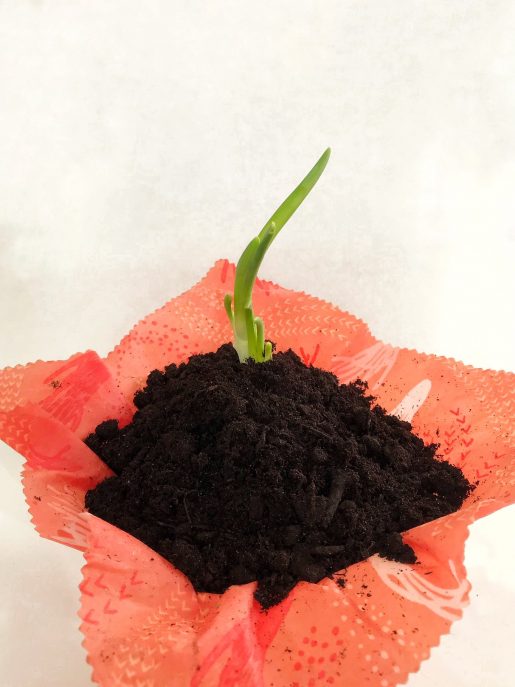🐝 SHIPPING 5€, FREE FROM 40€ - REST OF EUROPE 10€, FREE FROM 80€ 🐝
Have you ever thought where our food scraps go once they leave our house? And the scraps from restaurants? They almost always end up in landfills where we would think they break down over time. But this is not the case and here you can learn about the importance of composting.
Although they have a more complex system, in a nutshell landfills are huge pits with insulating materials which are filled with garbage and then covered with a layer of soil, that is, garbage and soil are interspersed to prevent the proliferation of rats, flies and bad smells. This method is used because various types of waste can be managed at a relatively low cost and because some of the gases released can be used as renewable energy.
Although they are a safer option than an open dump or an illegal landfill, sanitary landfills have two major problems since large amounts of liquids are generated (called leachate) that can be filtered dragging toxins into the underground layers of soil and water. On the other hand, the decomposition of waste generates two gases: methane (CH4) and carbon dioxide(CO2), both responsible for increasing the greenhouse effect.
Although landfills are not designed to decompose waste, but only to store it, the buried garbage decomposes slowly and due to the lack of oxygen the bacteria in the waste produce methane gas, highly flammable and dangerous if it accumulates underground. Although landfills have a gas collection system to process and obtain energy from these gases, a large amount is released to the outside.
Composting is one of the best contributions we can make to the environment. Organic matter represents between 30 and 40% of the total waste we generate at home and is easily degradable if separated from the rest of the garbage. If we dispose of it responsibly so that it is treated separately from inorganic waste, it can be processed in specialized plants that use it to obtain fertilizer and energy (biogas).
That’s how important composting is, we not only help to improve the recycling and treatment processes of the rest of the waste by saving natural resources and energy, but alsowe reduce considerably the percentage of emissions.
You can:
– Food scraps (fruit, vegetables, fish, meat)
– Coffee and infusions (including tea bags)
– Dry leaves and small branches
– Kitchen paper or napkins with food scraps (they should not contain any cleaning products traces)
You can’t:
– Sanitary waste (diapers, pads)
– baby napkins (they should not be flushed down the toilet even if the packaging says so!)
– Pet droppings (they are biodegradable but contain microorganisms that can be a risk to our health)
– Cigarette butts and ashes
– The dust we collect when sweeping
– Cooking oil (it should not be thrown down the sink either, a few drops of oil can contaminate up to 1000 liters of water)

Our beeswax wraps are reusable so in addition to avoiding meters of non-recyclable plastic film at home, when they reach the end of their useful life and you do not want to re-wax them they can be composted since their ingredients are biodegradable. Remember that you can also burn them, using them to start a fire for a barbecue or a fireplace.
We are responsible for our waste and now you know the importance of composting, check in your area where to dispose of organic matter safely or go ahead and start an at home compost! Do you already do it at home? Share your experience in the comments!
"A great discovery! The truth is that they have surprised me a lot, so much so that I am already going for my second order! 😀 Their designs are very original and varied, I also love the packing, you can see that they put a lot of love to the product. I also recommend it as a gift for your mothers, mine does not stop using them 😉 "
"Fabulous pack with different sizes of wraps, ideal for storing food of different dimensions. They are super useful for every day use. The applications it has are endless, and you also know that you are saving on plastics every time you use them, I love that they are reusable! "
"Wonderful. I bought a pack of three sizes and then an XL to give them as a gift, and they keep giving me good references. And I feel good knowing that I have done my bit to take care of the planet."
"The best package to try! You have the 3 essential sizes to try the product… .but you'll like it so much that you'll later buy the sizes you use the most !!!"
We took a break.
FOR ANY QUESTIONS SEND US A MESSAGE.
By continuing to use the site, you agree to the use of cookies. More information
The cookie settings on this website are set to "allow cookies" to give you the best browsing experience possible. If you continue to use this website without changing your cookie settings or you click "Accept" below then you are consenting to this.